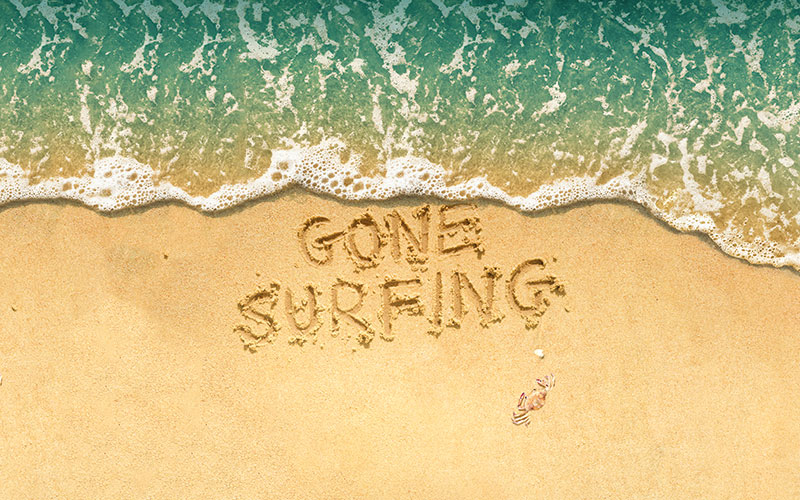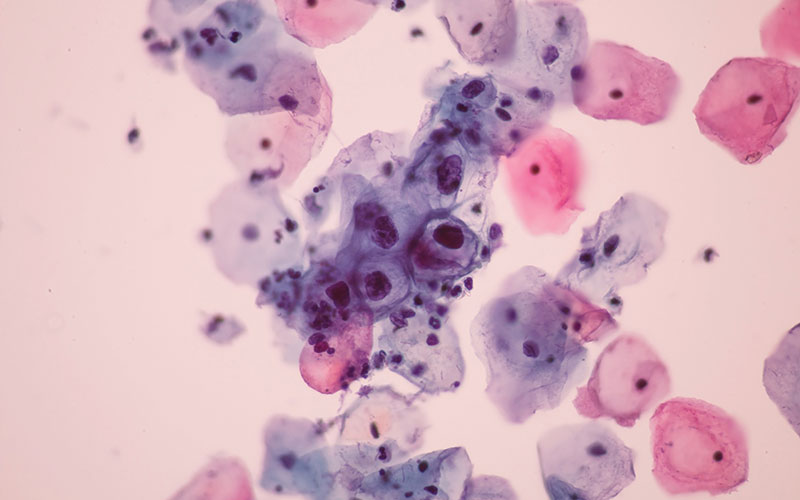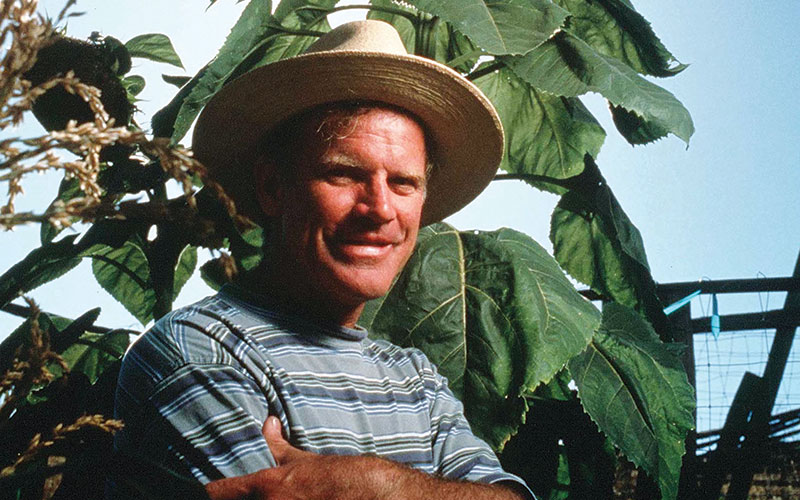Goodbye to the controversial chemist who won the Nobel Prize for inventing the polymerase chain reaction and ushering in the genomic era, while being an LSD-dropping, climate-change-denying, astrology-believing surfer, with a penchant for women and wine.

It is midnight, deep in the woods, and “at the far end of the path, under a fir tree, there was something glowing … It seemed to be a raccoon … The raccoon spoke. ‘Good evening, doctor,’ it said. I said something back, I don’t remember what, probably, ‘hello’.” The author admits, “I can’t make glowing raccoons appear. I can’t buy them from a scientific supply house to study… But I don’t deny what happened.”
The episode comes from Dancing Naked in the Mind Field, the 1998 autobiography of Dr Kary Banks Mullis, a Nobel laureate who died at his California home on 7 August from heart and respiratory failure. Notwithstanding talking raccoons that glow in the dark, what nobody denies is the monumental scientific legacy left by the “unconventional” scientist.
Mullis was awarded the 1993 Nobel Prize in Chemistry for his invention of the polymerase chain reaction (PCR), a pivotal point in the history of biology and medicine. As DNA pioneer Professor James Watson observed when he addressed the 1993 COGENE symposium, celebrating 40 years of molecular genetics: “It has been the ever-increasing sophistication of recombinant DNA techniques, bolstered by the 1985 polymerase chain reaction of Kary Mullis, as well as improvements in DNA sequencing procedures, that have led us into the genome era.”
But according to a Los Angeles Times obituary, Mullis was also “an LSD-dropping, climate-change-denying, astrology-believing, board-surfing, Nobel Prize-winning chemist, who was both widely respected and equally criticized for his controversial views.” It’s perhaps worth remembering, however, that Isaac Newton believed in alchemy, and the discoverer of oxygen Joseph Priestley held to the bogus doctrine that gases burned into “phlogiston”.
Early days
Kary B Mullis was born in 1944 in Lenoir, North Carolina, and by the 1950s the family had moved to Columbia, South Carolina, where the Mullis brothers enjoyed playing outdoors. When seven-year-old Kary received a chemistry set for Christmas “my objective with that set was to figure out what things I might put together to cause an explosion”. A career with chemicals beckoned.
In 1966, having gained a BS in chemistry from Georgia Institute of Technology, Mullis enrolled for a PhD at the University of California, Berkeley, researching the structure and organic synthesis of microbial iron transport agents. An early sign of Mullis’s precocious and wide-ranging intellect was evident from his first publication ‒ while a graduate student ‒ in the journal Nature, where he considered the topic of reversing time.
Between 1972 and 1979 Mullis was variously a biochemistry lecturer at the University of California, Berkeley and post-doctoral fellow at the University of Kansas Medical School and the University of California, San Francisco, respectively.

Professor Heather Cubie is an expert on human papillomavirus (HPV) detection and cancer prevention, having worked on many Scottish studies and on cervical screening and same-day treatment in Malawi.
“I worked on amplified DNA detection of HPV for in situ histochemistry in the mid-1980s, but the arrival of PCR became a game-changer very quickly for the field of molecular diagnostics. My first PCR assay was carried out standing over three water baths held at different temperatures, followed by Southern blotting for hybridisation (an Edinburgh discovery). HPV is one of those viruses which cannot readily be grown in cell culture, so molecular detection was the only way forward. Together with the development of HPV vaccines, PCR has changed our understanding and detection of HPV infection and the diseases/cancers it produces so dramatically that last year the World Health Organization declared that cervical cancer, the most common cancer associated with some types of HPV, could be eliminated. Such is the power of vaccines and screening tests.”
Cetus Corporation
It proved a significant career move when Mullis was recruited to the Cetus Corporation biotechnology company in Emeryville, California. The Cetus philosophy was “to eliminate as much of the routine work as possible, to allow scientists the time to do science”, but “the safety officer at Cetus and I had a real serious battle… I insisted on keeping my lunch and a case of Beck’s beer in the same fridge in which I kept my radioactive isotopes. I kept the beer on the bottom shelf and the radioactive isotopes in a sealed lead-lined container on the top shelf.”
Mullis recalls: “Cetus hired me in 1979 to make oligonucleotides. It was a wonderful place to be doing biochemistry… There were all kinds of wild ideas floating around the halls, and there was absolutely no restraint in terms of imagination.”
An oligonucleotide is a short chain of nucleotide bases, and in the 1970s, following the discovery of restriction endonucleases ‒ enzymes that snip DNA at specific points ‒ it became easier to isolate sections of DNA containing a gene of interest. “By the late 1970s, molecular biologists were busily studying DNA with endonucleases and with… oligonucleotide probes,” Mullis wrote.
Polymerase chain reaction technique
“I can’t make glowing raccoons appear. I can’t buy them from a scientific supply house to study… But I don’t deny what happened.”
By 1983 the synthesis of oligonucleotides had become automated, and for Mullis “there was a fair amount of time available to think and to putter. I found myself puttering around with oligonucleotides.” The focus of Mullis’s puttering was to see “if I could arrange for a short synthetic piece of DNA [a primer] to find a particular sequence and then start a process whereby that sequence would reproduce itself over and over” that could then be amplified a billion-fold or more to allow its detection and identification.
One spring evening in 1983 “I was driving to Mendocino County with a chemist friend. She was asleep. US 101 was undemanding. I liked night driving.” Mullis was mulling, when “Suddenly, I knew how to do it. If I could locate a thousand sequences out of billions with one short piece of DNA, I could use another short piece to narrow the search. This one would be designed to bind to a sequence just down the chain from the first sequence I had found. It would scan over the thousand possibilities out of the first search to find just the one I wanted.” Mullis realised that the amplification could be achieved by using a DNA polymerase and that the amplification would be exponential, yielding some billion molecules from around 30 amplification cycles.
“I didn’t sleep that night,” wrote Mullis. “We got to my cabin and I started drawing little diagrams on every horizontal surface that would take pen, pencil, or crayon, until dawn when, with the aid of a bottle of good Anderson Valley Cabernet, I settled into a perplexed semi-consciousness.”
Now Mullis had to prove that PCR worked. The date was 16 December 1983. He chose a 25-base-pair target fragment of a plasmid and two oligonucleotide primers that were 11 and 13 bases long, respectively. “When everything was ready, I ran my favourite kind of experiment: one involving a single test tube and producing a yes or no answer. Would the PCR amplify the DNA sequence I had selected? The answer was yes.” Mullis had successfully separated strands of the target DNA by heat; cooled the mixture and annealed primers to the target DNA strand; and used DNA polymerase to amplify with each cycle the target/primer segments of DNA.

Recognition
Mullis wrote up a paper describing his work and submitted it to the journals Nature and Science. They both rejected it, with Science asserting that the paper could “be published in some secondary journal,” since it was felt that “it would not be suitable to meet the needs of their readers.” But Nobel laureate James Watson ‒ co-discoverer of the structure of DNA ‒ grasped the significance of the PCR technique and invited Mullis to present his work at the 1986 Cold Spring Harbour symposium, the first public announcement of his invention, which was subsequently published in the symposium proceedings.
By 1989, and having previously rejected Mullis’ paper in 1986, Science conferred PCR with its “molecule of the year” award and chose DNA amplification as the “major scientific development of 1989.” PCR automation, with the development of thermal cyclers, has widened the technique’s applications, increased efficiency and reduced assay times, and a 2009 review noted: “Forensic laboratory science has been revolutionised by the application of the PCR technique, and PCR has even been used in molecular palaeontology and the study of fossil DNA. Sequencing of the human genome and many animal and microbial species relied on PCR for its success… It can truly be said that Dr Mullis has given an evolving tool that still today continues to yield new and important applications.”
But as journalist Daniel S Greenberg explained: “The immense wealth generated by PCR eluded him. The Cetus Corporation, where he worked when he invented the PCR technique, paid him only $10,000 for the patent, which it later sold to Hoffmann-La Roche for $300m.”
Insights into Neanderthal genetics
Terry Brown is Emeritus Professor of Biomolecular Archaeology at the University of Manchester.
“During the 1980s I was one of several people trying to study DNA in archaeological bones. We knew that ‘ancient DNA’ existed but was present in tiny amounts and very difficult to detect using the methods available at that time. Then in 1986 I read about this new technique called PCR, invented by some guy in California one evening while he was out driving with his girlfriend. It sounded too good to be true – a way of amplifying pieces of DNA from tiny starting amounts into quantities sufficient for sequencing.
“I obtained the necessary equipment and tried it out with a 2000-year-old bone. One week later I had my first ancient DNA sequence. Today ancient DNA is studied by researchers around the world and has given us insights into Neanderthal genetics, the evolution of disease, and the impact of past climate change on ecosystems. None of this would have been possible without Kary Mullis.
“Surfer Wins Nobel Prize”
Six months before the 1993 Nobel laureates were to be announced, Mullis’ PhD mentor John B Neilands contacted him: “Neilands said that it was probably okay that I admitted loving surfing and women, but he thought the [Nobel] committee might frown on the fact that I admitted using LSD. Surfing, women, and LSD might be too much, he told me.”
But early on 13 October 1993 ‒ his mother’s birthday ‒ he was given the good news in a telephone call. Then his friend “Steve Judd showed up as he usually did around seven, and I told him that I had just won the Nobel Prize. He said: ‘I know. I heard it on the radio. Let’s go for a surf’. As it turned out, none of the other Nobel laureates that year were serious about surfing, and ‘Surfer Wins Nobel Prize’ made headlines.”
Mullis won many more awards, achieved a measure of financial security and his status as a Nobel laureate meant that his opinions were sought on a variety of issues. Some of his opinions courted controversy, which Mullis did not shy away from.
Controversialist
In his autobiography Dancing Naked in the Mind Field Mullis observed: “The concept that human beings are capable of causing the planet to overheat or lose its ozone seems about as ridiculous as blaming the Magdalenian paintings for the last ice age.”
And in November 1994 the organiser of a symposium, Mullis recalls, contacted him to say he was “looking for ‘particularly articulate scientists who bridge the biochemical and medical disciplines and routinely engage in out-of-the-box thinking’. Well, that certainly was me.” But the invitation was hastily withdrawn when Mullis said: “I would speak about the fact that there is no scientific evidence that HIV is the probable cause of AIDS and that I believed people taking the drug AZT were being poisoned.”
On the other hand, 20 years after Mullis aired his views on cholesterol, there seems to be a growing evidence base favouring his statement that “Cholesterol is not some horrible thing that chickens put into their eggs, it’s something our bodies need, otherwise we wouldn’t be making it. If there was something wrong with it, our bodies would have learned how to make something else to replace it.”
One of the greatest 20th century scientific inventions
Steve Clarke is a retired Fellow of the Institute of Biomedical Science.
“The recent passing of this American biochemist in August this year is an opportunity to reflect on the impact of his conceptual invention of the PCR in 1983. Kary Mullis developed an extreme interest in scientific inventions from an early age. This technique for the rapid amplification of DNA is highly sensitive, specific and inexpensive. It has a vast range of applications in biomedical science, molecular genetics, forensic science and molecular palaeontology and it has been hailed as one of greatest scientific inventions of the 20th century.”
Finally
Dr Kary B Mullis had a restless curiosity about many aspects of life, particularly science. He continued to be active, vocal and causing controversy until the end of his years. That his powerful, playful intellect generated not only one of the twentieth century’s great scientific advances, but also courted controversy, invites the inference that progress is not so much dependent on what we think but on how we think.
The Nobel Prize-winning chemist, and surfer, wrote: “When I fall, I hold my breath. The sea takes me into her arms. I’m not bruised. I wait underwater until the action of my board in the whitewater, bouncing around, looking to all the world like it was trying to find my head, is over. Then, I come up.”
Kary B mullis in quotes
"The safety officer at Cetus and I had a real serious battle… I insisted on keeping my lunch and a case of Beck’s beer in the same fridge in which I kept my radioactive isotopes."
"There were all kinds of wild ideas floating around the halls, and there was absolutely no restraint in terms of imagination."
"I started drawing little diagrams on every horizontal surface, until dawn when, with the aid of a bottle of good Anderson Valley Cabernet, I settled into a perplexed semi-consciousness."
"When everything was ready, I ran my favourite kind of experiment: one involving a single test tube and producing a yes or no answer."
"It was probably okay that I admitted loving surfing and women, but he thought the [Nobel] committee might frown on the fact that I admitted using LSD."
